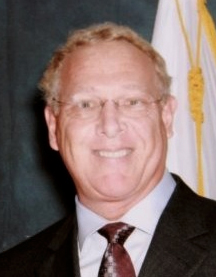
INTERVIEW
From Chalk Boards To Screen Trading

Scott Slutsky has more than 30 years’ experience in the futures industry. For 20 years he was a currency trader and broker at the Chicago Mercantile Exchange. In addition to trading for his own account, he managed and filled orders in various trading pits for firms such as Goldman Sachs, Morgan Stanley, and Lehman Brothers. Long active in industry affairs, he is a former director of the CME and is a current director of the CME Group Political Action Committee. In 2012, he formed BRICS Global Markets, where he is president and CEO. Based in Chicago, the firm offers specialized global clearing and execution services, financial consulting services, and fund management expertise. Since 2000, he has traveled the world promoting the futures industry. He is the author of three books: Masters Of The Futures, The Complete Guide To Electronic Trading, and The Promises And Pitfalls Of FX.
STOCKS & COMMODITIES Editor Jayanthi Gopalakrishnan spoke with Slutsky on September 9, 2013 about the transition from floor trading to screen trading and what he enjoys most about the industry.
Scott, how did you get interested in the financial markets?
I consider myself lucky — I basically grew up in the futures industry. My father was an egg trader at the Chicago Mercantile Exchange (CME) in the early ’60s. My first summer job was at the CME working on the chalkboards in the foreign currencies. In those days, we had to run back and forth to the different currency boards putting up bids, offers, and trades. After the close, we would take a Polaroid picture of the settlement prices and eventually that went out across the financial wire services to customers around the world.
Having developed a passion for currencies, I later purchased my own CME membership and traded the Swiss franc, Japanese yen, and the euro currency for the next 25 years. Then, in 1990, I was fortunate enough to have been elected to the CME’s board of directors, and that truly was the best learning experience of my life. I had the unique opportunity to participate in shaping the future of futures.
That’s what I wanted to speak with you about. You were around when the floor was a hopping place. Now it has nearly all transitioned to the trading screen. What are some of the differences you have seen between the two?
Each one of us is a student of the market, including me. Every time I go on a speaking tour, I learn something.The true difference between the trading floor days and today’s screen trading is simple: In the “hopping days,” you traded by pure instinct and emotion, being surrounded by hundreds of people yelling, screaming, and pushing, all with a different game plan. Some people traded their own account and worked for small gains, while others filled customer orders for various brokerage firms. It seemed like chaos to the outside public, but for the most part, it was truly a professional environment. Screen trading evolved around technology, as data and information became more accessible. Exchanges and futures commission merchants (FCMs) embraced the idea, as it was more cost efficient for them and had better risk-management tools. Today, the retail and institutional trader have an even playing field no matter where they live or trade from.
Are the equity markets different from the futures markets? Do you think it’s easier or harder for retail traders to trade in the equity markets?
Yes, the equity markets are different and I’ll tell you why. Most equity traders have been taught the buy & hold method of trading, where they own shares of a particular company. They can hold these shares for as long as they want. Futures traders, on the other hand, trade contracts with expiration dates. It’s easier to buy and sell futures and to capitalize on trends in the market.
As for retail traders who trade equities, in one sense, they have it easier than futures traders in that there are many more equity firms than there are futures firms. However, with all the algorithmic trading in the equities markets these days, the retail trader has been taken out of the game. Today’s retail equity trader must be a stock-picker and not a buy & hold trader.